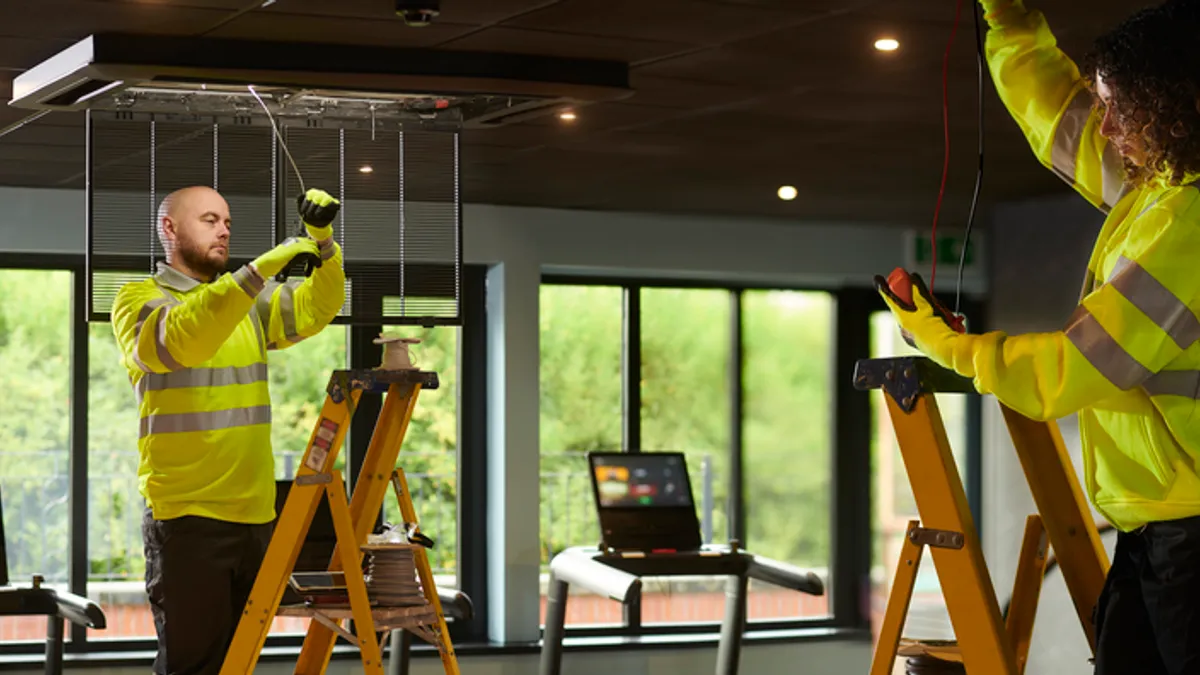Dive Brief:
- A wave of lawsuits has hit Johnson Controls regarding its commission policy since a class-action suit was filed Jan. 12 on behalf of account executives and field-sales employees in the U.S. District Court in Milwaukee.
- Since then, separate lawsuits have cropped up in Michigan and a federal court in New York, where two sales representatives alleged in separate complaints filed Monday and Tuesday that the company owes them over $229,000 and over $140,000, respectively, in unpaid commissions.
- These lawsuits come after recent turmoil at Johnson Controls, including a “significant disruption” from a cyberattack in September that cost the company $27 million.
Dive Insight:
The lawsuits, filed by at least 28 representatives across the country, center on changes in Johnson Control’s incentive and commission structure.
For at least the last few decades, the fire, HVAC, security and building controls firm paid its sales representatives about 20% to 25% of each commission after the contract closed, with the remaining 75% to 80% — known as the backlog — paid over the life of the project, according to the Wisconsin class-action lawsuit. Projects could last for months to years, the complaint states, with sales representatives allegedly having backlogs up to hundreds of thousands of dollars.
In November 2023, the Wisconsin lawsuit states, Johnson Controls announced a new sales incentive plan, retroactive to Oct. 1, 2023, that would eliminate the use of backlogs and instead pay sales commissions at the time the project is booked.
“The 2024 Plan contains terms for the payment of commissions that is far different from the 2023 Plan and all previous plans provided to Plaintiff on new jobs to be secured by Defendant’s salespersons who sell HVAC, fire and security equipment and installation,” the complaint filed Tuesday in the U.S. District Court for the Southern District of New York states.
According to that New York filing, the company told the plaintiff that it would not pay the backlog for equipment and projects that salespersons booked prior to Oct. 1, 2023, that have not yet gone to warranty. “This is a retroactive change to Plaintiff’s due and owing wages,” the complaint states.
The plaintiff also alleges that Johnson Controls erased the salesperson’s dashboards and spreadsheets that provided them with information on how much backlog was owed to them and when their booked sales were completed. This makes it “extremely difficult for [the salesperson] to determine precisely when [Johnson Controls] steals each of his earned but unpaid commissions for ongoing projects,” the Feb. 13 complaint states.
The class-action suit alleges that Johnson Controls continues to receive billions of dollars in payments related to customer sales and service agreements and is returning that money to shareholders instead of honoring its commission agreements with these employees. This original lawsuit was also amended on Feb. 8 to include 16 more plaintiffs in Wisconsin.
As part of the 2024 plan, Johnson Controls paid commissioned sales employees a “one time bridge payment” in November, equal to 22% of representatives’ accrued backlog, which the company said was to assist with transitioning salespersons to the new plan, the Jan. 12 class action complaint stated. In response to “significant opposition” to the new plan, the suit states, the company then offered salespeople two additional “bridge” payments, each of which would provide another 14% of accrued backlog if the employee was still employed by Johnson Controls in June 2025 and 2026, respectively, and met certain conditions.
“The success of our organization is directly tied to the success of our people, and we routinely assess our practices to best support their growth and achievements,” a Johnson Controls spokesperson told Facilities Dive. “We modified our sales incentive program to better align with our company strategy to deliver smart, healthy and more sustainable environments for our customers. We will continue to assist our sales organization to ensure a seamless transition to our revised competitive model.”














